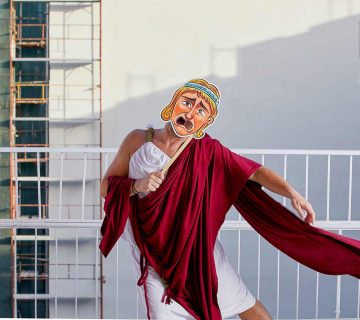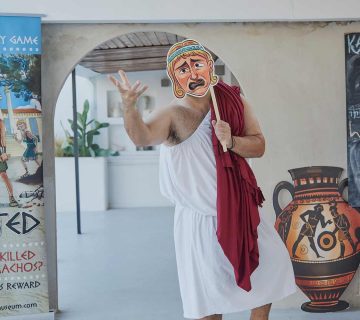Discover more about ancient Greek religion!
The origins of ancient Greek religion are complex and rooted in the prehistoric period of Greek history. It evolved over time, blending elements from different cultures and regions. Here are some key aspects of the origins of ancient Greek religion:
Here are some facts
1. **Minoan and Mycenaean Influences (circa 2000–1100 BCE):** The Minoan civilization on the island of Crete and the Mycenaean civilization on the Greek mainland were two significant influences on early Greek religion. The Minoans, for example, had a complex religious system with a focus on nature deities. The Mycenaeans incorporated these ideas into their own religious practices.
2. **Indigenous Cults and Practices:** Before the emergence of a unified Greek religion, there were local cults and practices specific to different regions and city-states. These cults often centered around natural features like mountains, rivers, and caves. Each city-state had its own patron deities and rituals.
3. **Dorian Invasion and Dark Ages (circa 1200–800 BCE):** The collapse of the Mycenaean civilization is often associated with the Dorian Invasion, a period marked by widespread upheaval and migrations. This led to a decline in cultural and economic activity, often referred to as the Greek Dark Ages. During this time, many aspects of Mycenaean religion were lost or transformed.
The Epics are here!
4. **Hesiod and Theogony (8th century BCE):** Hesiod, a poet of ancient Greece, played a crucial role in shaping the Greek religious worldview with his work “Theogony.” This epic poem provided a genealogy of the gods and established a pantheon that would become central to Greek religious beliefs.
5. **Homeric Epics (8th century BCE):** The works of Homer, including the “Iliad” and the “Odyssey,” contributed significantly to the Greek religious tradition. These epics not only provided a narrative of heroic deeds but also depicted the interactions between mortals and the gods, offering insights into Greek religious concepts.
6. **City-State Religions (7th–5th centuries BCE):** As Greece emerged from the Dark Ages, city-states began to flourish, each with its own distinct religious practices. The polis, or city-state, often had a central temple dedicated to its patron deity, and religious festivals played a crucial role in community life.
7. **Panhellenic Cults (6th–4th centuries BCE):** Over time, certain cults and festivals gained panhellenic significance, attracting participants from different city-states. Examples include the Olympic Games, which were held in honor of Zeus at Olympia, and the Eleusinian Mysteries, dedicated to Demeter and Persephone.
Conclusion
In summary, ancient Greek religion emerged from a complex interplay of indigenous traditions, external influences, and the contributions of poets and thinkers. The decentralized nature of Greek society, with its numerous city-states, also allowed for diverse religious practices to coexist and evolve over time.



